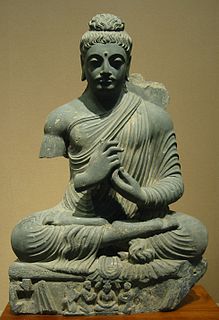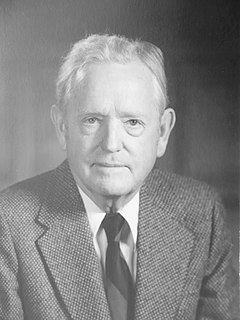Related Research Articles

Epistemology, or the theory of knowledge, is the branch of philosophy concerned with knowledge. Epistemologists study the nature, origin, and scope of knowledge, epistemic justification, the rationality of belief, and various related issues. Epistemology is considered a major subfield of philosophy, along with other major subfields such as ethics, logic, and metaphysics.

Immanuel Kant was a German philosopher and one of the central Enlightenment thinkers. Born in Königsberg, Kant's comprehensive and systematic works in epistemology, metaphysics, ethics, and aesthetics have made him one of the most influential figures in modern Western philosophy.

Metaphysics is the branch of philosophy that studies the fundamental nature of reality, the first principles of being, identity and change, space and time, causality, necessity, and possibility. It includes questions about the nature of consciousness and the relationship between mind and matter, between substance and attribute, and between potentiality and actuality. The word "metaphysics" comes from two Greek words that, together, literally mean "after or behind or among [the study of] the natural". It has been suggested that the term might have been coined by a first century CE editor who assembled various small selections of Aristotle's works into the treatise we now know by the name Metaphysics.

Ontology is the branch of philosophy that studies concepts such as existence, being, becoming, and reality. It includes the questions of how entities are grouped into basic categories and which of these entities exist on the most fundamental level. Ontology is sometimes referred to as the science of being and belongs to the major branch of philosophy known as metaphysics.
In philosophy, rationalism is the epistemological view that "regards reason as the chief source and test of knowledge" or "any view appealing to reason as a source of knowledge or justification". More formally, rationalism is defined as a methodology or a theory "in which the criterion of the truth is not sensory but intellectual and deductive".
Intentionality is the power of minds to be about something: to represent or to stand for things, properties and states of affairs. Intentionality is primarily ascribed to mental states, like perceptions, beliefs or desires, which is why it has been regarded as the characteristic mark of the mental by many philosophers. A central issue for theories of intentionality has been the problem of intentional inexistence: to determine the ontological status of the entities which are the objects of intentional states.
In logic and philosophy, a property is a characteristic of an object; a red object is said to have the property of redness. The property may be considered a form of object in its own right, able to possess other properties. A property, however, differs from individual objects in that it may be instantiated, and often in more than one object. It differs from the logical/mathematical concept of class by not having any concept of extensionality, and from the philosophical concept of class in that a property is considered to be distinct from the objects which possess it. Understanding how different individual entities can in some sense have some of the same properties is the basis of the problem of universals.

The Nyāya Sūtras is an ancient Indian Sanskrit text composed by Akṣapāda Gautama, and the foundational text of the Nyaya school of Hindu philosophy. The date when the text was composed, and the biography of its author is unknown, but variously estimated between 6th-century BCE and 2nd-century CE. The text may have been composed by more than one author, over a period of time. The text consists of five books, with two chapters in each book, with a cumulative total of 528 aphoristic sutras, about rules of reason, logic, epistemology and metaphysics.
In ontology, ontic is physical, real, or factual existence.
Relationalism is any theoretical position that gives importance to the relational nature of things. For relationalism, things exist and function only as relational entities. Relationalism may be contrasted with relationism, which tends to emphasize relations per se.
The following outline is provided as an overview of and topical guide to philosophy:
Vaiśeṣika Sūtra, also called Kanada sutra, is an ancient Sanskrit text at the foundation of the Vaisheshika school of Hindu philosophy. The sutra was authored by the Hindu sage Kanada, also known as Kashyapa. According to some scholars, he flourished before the advent of Buddhism because the Vaiśeṣika Sūtra makes no mention of Buddhism or Buddhist doctrines; however, the details of Kanada's life are uncertain, and the Vaiśeṣika Sūtra was likely compiled sometime between 6th and 2nd century BCE, and finalized in the currently existing version before the start of the common era.

Moderate realism is a position in the debate on the metaphysics of universals associated with the hylomorphic substance theory of Aristotle. There is no separate realm in which universals exist, nor do they really exist within particulars as universals, but rather universals really exist within particulars as particularised, and multiplied.

Buddhist logico-epistemology is a term used in Western scholarship for pramāṇa-vāda and Hetu-vidya. Pramāṇa-vāda is an epistemological study of the nature of knowledge; Hetu-vidya is a system of logic. These models developed in India during the 5th through 7th centuries.
Metaphysics is the branch of philosophy that investigates principles of reality transcending those of any particular science. Cosmology and ontology are traditional branches of metaphysics. It is concerned with explaining the fundamental nature of being and the world. Someone who studies metaphysics can be called either a "metaphysician" or a "metaphysicist".
The following outline is provided as an overview of and topical guide to metaphysics:

Eliot Deutsch was a philosopher, teacher, and writer. He made important contributions to the understanding and appreciation of Eastern philosophies in the West through his many works on comparative philosophy and aesthetics. He was a Professor Emeritus of Philosophy at the University of Hawaii.
Arindam Chakrabarti is, currently, a visiting professor of philosophy at Ashoka University, India. He is, also, a professor of philosophy at Stony Brook University, where he has been since 2018. Prior to moving to Stony Brook, Chakrabarti taught at the University of Hawaii, where he was the director of the EPOCH Project.
In metaphysics, object-oriented ontology (OOO) is a 21st-century Heidegger-influenced school of thought that rejects the privileging of human existence over the existence of nonhuman objects. This is in contrast to what it calls the "anthropocentrism" of Kant's philosophy by proposing a metaphorical Copernican Revolution, which would displace the human from the center of the universe like Copernicus displaced the Earth from being the center of the universe Object-oriented ontology maintains that objects exist independently of human perception and are not ontologically exhausted by their relations with humans or other objects. For object-oriented ontologists, all relations, including those between nonhumans, distort their related objects in the same basic manner as human consciousness and exist on an equal footing with one another.

Donald Cary Williams, usually cited as D. C. Williams, was an American philosopher and a professor at both the University of California Los Angeles and at Harvard University.
References
- ↑ "Joseph Kaipayil - Academia.edu".
- 1 2 The Epistemology of Comparative Philosophy . Rome: Centre for Indian and Inter-religious Studies, 1995.
- ↑ As found in Kant’s Critique of Pure Reason (1781, 1787)
- ↑ Kaipayil, Joseph (2002). Critical Ontology. Bangalore: JIP Publications. ISBN 9788187664024.
- ↑ Human as Relational. Bangalore: JIP Publications 2003.
- ↑ An Essay on Ontology. Kochi: Karunikan Books, 2008.
- ↑ Relationalism: A Theory of Being. Bangalore: JIP Publications, 2009.
- ↑ Relationalism: A Theory of Being
- ↑ Krishna, Daya. Indian Philosophy: A Counter Perspective. New Delhi: Oxford University Press, 1991.
- ↑ Mohanty, J. N. Essays on Indian Philosophy. New Delhi: Oxford University Press, 1993.
- ↑ ”Comparative Philosophy.” In Encyclopedia of Philosophy, vol.1, edited by Johnson J. Puthenpurackal, 296-98. Bangalore: Asian Trading Corporation, 2010.